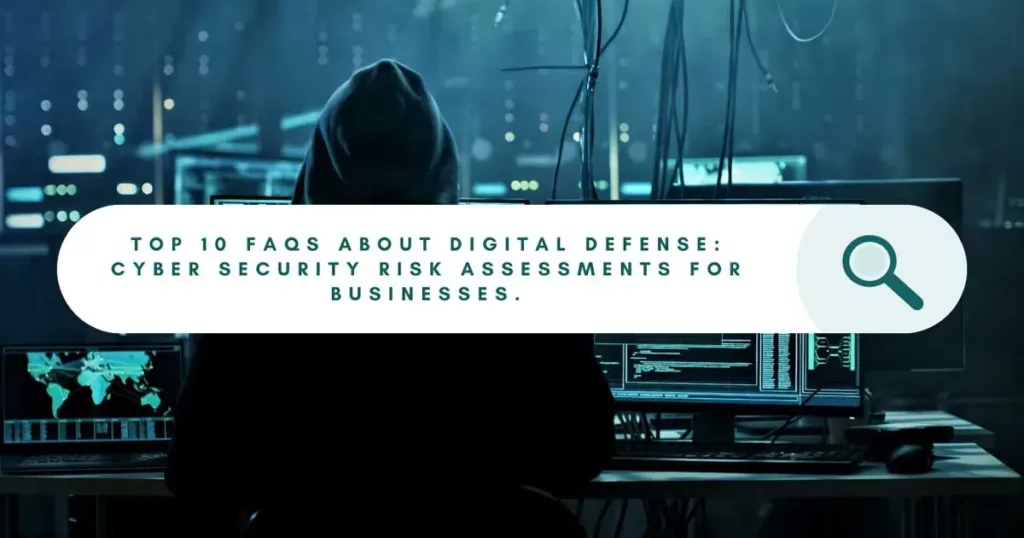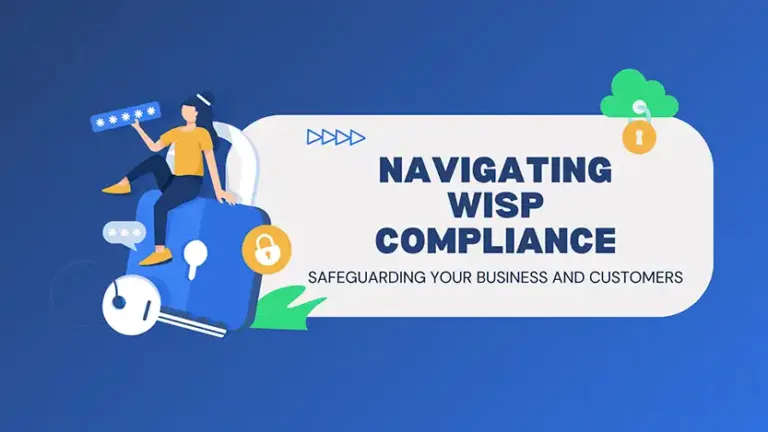In the fast-paced digital world, safeguarding your business’s cyber infrastructure is not just an option; it’s a necessity. Cyber Security Risk Assessments for Businesses play a pivotal role in identifying vulnerabilities and fortifying defenses against potential cyber threats. Here are the top ten FAQs to help you navigate the complexities of cyber security risk assessments.
1. What Exactly Is a Cyber Security Risk Assessment?
A cyber security risk assessment is a comprehensive review process that identifies which assets are most vulnerable to cyber threats, evaluates potential impacts of breaches, and prioritizes risks based on severity. It encompasses everything from data protection to IT infrastructure and operational resilience.
2. Why Are Cyber Security Risk Assessments for Businesses Crucial?
With cyber threats evolving at an alarming rate, a risk assessment ensures that your protective measures are always several steps ahead. It not only helps in preventing data breaches but also safeguards your reputation, maintains customer trust, and ensures compliance with legal standards.
3. What Are the Key Components of a Cyber Security Risk Assessment?
The main components include identifying and prioritizing assets, assessing threats and vulnerabilities, evaluating the impact of potential breaches, and determining risk levels. This process helps in formulating a strategic response to mitigate identified risks.
4. How Often Should My Business Conduct a Cyber Security Risk Assessment?
The frequency depends on several factors, including the nature of your business, the volume of data handled, and the rapidity of IT changes within your organization. However, conducting an assessment annually or bi-annually is generally recommended, with more frequent reviews if undergoing significant changes or facing increased threat levels.
5. Who Should Perform the Cyber Security Risk Assessment?
While some businesses have the capability to conduct these assessments in-house, others might benefit from external experts who bring specialized knowledge and an unbiased perspective. A combination of internal and external assessments can offer comprehensive insights.
6. Can Small Businesses Benefit from Cyber Security Risk Assessments?
Absolutely. Small businesses are increasingly targeted by cybercriminals due to perceived lower defense mechanisms. Assessments provide enterprise-level insights into vulnerabilities and offer a roadmap for enhancing security measures.
7. What Are Common Cyber Threats Identified in These Assessments?
Common threats include ransomware, phishing attacks, data leaks, malware, insider threats, and denial of service (DOS/DDOS) attacks. Understanding these threats is crucial for developing effective defense strategies.
8. What Role Do Third-Party Vendors Play in Cyber Security Risk Assessments?
Third-party vendors can introduce cyber risks into your business. Assessing their security measures is integral to your overall cyber security posture. Tailoring assessments based on the criticality of each vendor ensures resources are allocated efficiently.
9. How Do I Prioritize Risks Identified in the Assessment?
Risks should be prioritized based on their potential impact on your business and the likelihood of occurrence. This prioritization helps in allocating resources effectively and addressing the most critical vulnerabilities first.
10. What Steps Should My Business Take Following the Assessment?
After identifying and prioritizing risks, develop and implement a risk mitigation plan. This includes deploying security controls, conducting regular reviews and updates, and fostering a culture of cyber security awareness among employees.
Conducting Cyber Security Risk Assessments for Businesses is a strategic step towards safeguarding your digital assets and ensuring business continuity. By understanding your vulnerabilities, you can implement targeted defenses that protect against the most pressing cyber threats.
Take the first step towards securing your business’s digital future. For detailed insights and guidance on conducting a cyber security risk assessments for businesses, visit our comprehensive Blog Insights at Grab The Axe. Together, we can build a resilient digital defense system for your business.
References:
Cyber Resource Hub, CISA: CISA Cyber Resource Hub
Cyber Guidance for Small Businesses, CISA: CISA Cyber Guidance for Small Businesses
Cyber Security Risk Assessments for Businesses – To Learn More:
What is included in a cybersecurity assessment? A Detailed Guide 2024
Cybersecurity Threats 2024: Stay Protected with Advanced Strategies






This Post Has 6 Comments
Pingback: Financial Cybersecurity Strategies: Insights from Leslie Hall at UAT
Pingback: Phoenix Security Consulting: Top 5 Essential Tips to Protect Your Business - Grab The Axe
Pingback: Unleash the Power of AI Network Security: Your Ultimate Defense Against Cyber Threats - Grab The Axe
Pingback: Unveil the Benefits of a Layered Security Strategy for Robust Protection - Grab The Axe
Pingback: Academic Cybersecurity Insights: Strategies from Professor Craig Belanger at UAT
Pingback: Strengthening Faith: Cybersecurity Practices for Religious Institutions - Grab The Axe
Comments are closed.